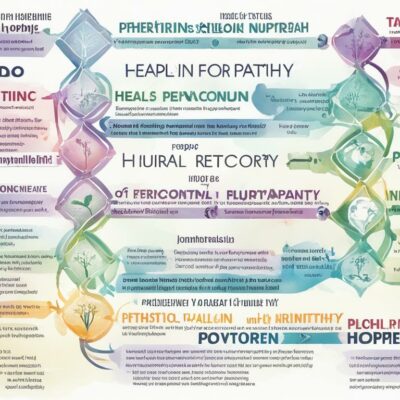
The Incredible Benefits of Calcium
Calcium is an essential mineral that plays a crucial role in maintaining overall health and well-being. It is well-known for its role in building strong bones and teeth, but its benefits extend far beyond that. In this article, we will explore the incredible benefits of calcium and why it should be an integral part of a balanced diet.
Calcium and Strong Bones
Calcium is vital for the development and maintenance of strong bones. It works in synergy with other minerals, such as phosphorus and magnesium, to support bone density and strength. Adequate calcium intake during childhood and adolescence helps in the proper formation of bones, reducing the risk of fractures and osteoporosis later in life.
Calcium’s Role in Muscle Function
Muscle contraction and relaxation rely on calcium ions. When a nerve impulse reaches a muscle fiber, calcium is released, allowing the muscle to contract. Without sufficient calcium, muscle function can be compromised, leading to muscle cramps, weakness, and fatigue.
Calcium and Nerve Transmission
Calcium is involved in the transmission of nerve impulses throughout the body. It helps in the release of neurotransmitters, which are essential for communication between nerve cells. Adequate calcium levels ensure efficient nerve transmission, contributing to proper brain function and overall cognitive health.
Calcium and Dental Health
Calcium is crucial for maintaining strong and healthy teeth. It helps to strengthen tooth enamel, protecting against decay and cavities. Additionally, calcium plays a role in supporting the structure of the jawbone, which is necessary for holding teeth in place.
Calcium and Blood Clotting
Calcium is essential for blood clotting, a process that prevents excessive bleeding when we get injured. It helps in the activation of various clotting factors, enabling the formation of a clot to seal the wound. Without sufficient calcium, the blood clotting process can be impaired, leading to prolonged bleeding.
Calcium and Heart Health
Calcium is involved in maintaining a healthy heartbeat. It plays a crucial role in the contraction and relaxation of the heart muscles, ensuring proper cardiac function. Adequate calcium intake supports normal blood pressure levels and reduces the risk of cardiovascular diseases.
Calcium and Metabolism
Calcium is involved in regulating various metabolic processes in the body. It plays a role in enzyme activation and hormone release, contributing to efficient metabolism. Adequate calcium levels are essential for maintaining a healthy weight and supporting overall metabolic health.
Calcium and Weight Management
Research suggests that calcium may aid in weight management. It is believed that calcium binds to fat in the digestive tract, preventing its absorption and promoting its excretion. Additionally, calcium-rich foods can help you feel fuller for longer, reducing overall calorie intake.
Calcium and Hormonal Balance
Calcium is involved in regulating hormone levels in the body. It plays a role in the secretion of various hormones, including those involved in thyroid function, blood sugar regulation, and mood stability. Adequate calcium intake is crucial for maintaining hormonal balance and overall well-being.
Calcium and Preventing Osteoporosis
Osteoporosis is a condition characterized by low bone density and increased risk of fractures. Adequate calcium intake throughout life, coupled with other bone-healthy practices like regular exercise, can help prevent the development of osteoporosis and maintain strong bones as we age.
Calcium Sources and Recommended Intake
Calcium-rich foods include dairy products like milk, cheese, and yogurt, as well as leafy green vegetables, tofu, almonds, and fortified plant-based milks. The recommended daily intake of calcium varies depending on age and gender. Generally, adults require around 1000-1200 mg of calcium per day.
Calcium Supplements: Pros and Cons
In some cases, meeting the recommended calcium intake solely through diet can be challenging. Calcium supplements can be an option to fill the gap, but they should be taken under medical supervision. Excessive calcium supplementation may lead to side effects and interfere with the absorption of other minerals.
Calcium-Rich Recipes for a Healthy Diet
Incorporating calcium-rich recipes into your diet can be a delicious way to ensure adequate intake. Try recipes like spinach and feta stuffed chicken breast, broccoli and cheddar soup, or a refreshing fruit and yogurt smoothie. These recipes provide a tasty way to boost your calcium levels.
Conclusion
Calcium is a vital mineral with numerous incredible benefits for overall health. From supporting strong bones and teeth to promoting muscle function, nerve transmission, and heart health, calcium plays a crucial role in various bodily functions. By incorporating calcium-rich foods into your diet or considering supplements if necessary, you can enjoy the remarkable advantages of this essential mineral.
Frequently Asked Questions (FAQs)
Q1. Can I get enough calcium from plant-based sources?
- Yes, several plant-based sources, such as leafy greens, tofu, and fortified plant-based milks, provide calcium. It’s essential to incorporate a variety of these foods into your diet to meet your calcium needs.
Q2. Are there any side effects of calcium supplementation?
- Excessive calcium supplementation can lead to side effects such as constipation, kidney stones, and interference with the absorption of other minerals. It’s advisable to consult with a healthcare professional before starting calcium supplements.
Q3. Can calcium help with PMS symptoms?
- Some studies suggest that calcium supplementation may help reduce symptoms of premenstrual syndrome (PMS), such as mood swings and bloating. However, more research is needed to establish a conclusive link.
Q4. Are there any food combinations that enhance calcium absorption?
- Vitamin D aids in calcium absorption, so consuming calcium-rich foods with sources of vitamin D, such as fortified dairy products or sunlight exposure, can enhance absorption.
Q5. Can calcium intake affect iron absorption?
- Calcium can inhibit the absorption of iron. If you’re taking iron supplements or consuming iron-rich foods, it’s advisable to separate them from calcium-rich foods or supplements by a few hours to optimize iron absorption.











